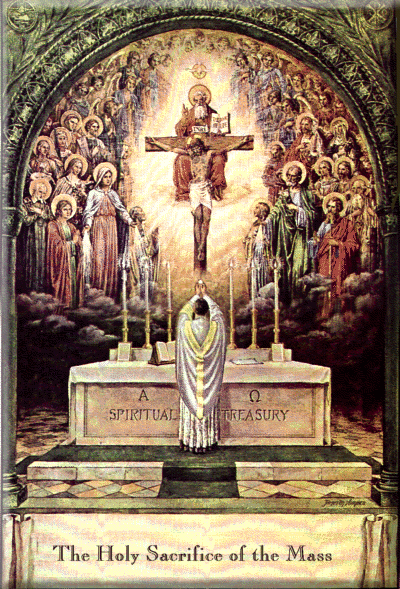Roman Catholics have woven a great philosophy round transubstantiation. If you ask: ‘How can that happen, because I still see something that looks like bread, which is white and has the texture of bread and tastes like bread?’ their reply is that that is perfectly correct. But they add that anything that you see can be divided into two main sections or divisions—the substance and the accidents.

Now as I have said, I do not want to go into this in detail, but I do think that it is important that we should know something about it because there are so many people today who say that they have been blessed by such teaching. And you will always find that when true Protestantism is lifeless and lethargic there is a strange attraction for some people in sacramental teaching where you have nothing to do but receive the bread and it acts almost automatically.
So, this view says that the whiteness of bread does not belong to the substance of bread but is one of the accidents, as are the texture and the taste, and the substance can be changed without affecting the accidents. So it is believed that the substance of bread is no longer what it was, but by a miracle becomes the actual body of the Lord. And, of course, believing that the bread is now essentially the body of the Lord, Roman Catholics put it in a special vessel; they worship it; they address their prayers to it; they call it ‘the host’ and carry the host in processions.
 Now there is no need for us to stay with this because even the Roman Catholic Church herself is prepared to admit that the doctrine cannot be proved from the Scriptures. They try to lay great emphasis on the fact that our Lord said, ‘This is my body’ (Luke 22:19). That ‘is’, they say, is all-important. They say that He did not say, ‘This represents my body,’ but, ‘This is my body,’ and you must take His words literally. There are many obvious answers to that. There was our Lord standing in His body, so how could He therefore mean that the bread that was in front of Him was actually His body? He was speaking in the body at the time and there was bread in His hand. That is one answer.
Now there is no need for us to stay with this because even the Roman Catholic Church herself is prepared to admit that the doctrine cannot be proved from the Scriptures. They try to lay great emphasis on the fact that our Lord said, ‘This is my body’ (Luke 22:19). That ‘is’, they say, is all-important. They say that He did not say, ‘This represents my body,’ but, ‘This is my body,’ and you must take His words literally. There are many obvious answers to that. There was our Lord standing in His body, so how could He therefore mean that the bread that was in front of Him was actually His body? He was speaking in the body at the time and there was bread in His hand. That is one answer.But there is another, and in many ways a more powerful, answer and one which the Roman Catholics can never deal with. Our Lord later goes on to say, ‘This cup is the new testament in my blood’ (Luke 22:20) and you can say to them that if they insist upon the ‘is’ in the one case they must insist upon it in the other. Therefore the wine does not matter at all, but it is the cup that matters because He said ‘this cup’, not the wine in the cup. Of course, there is no answer to that. In other words, the attempt to base this doctrine of transubstantiation upon that one word is not only unscriptural but is, indeed, unreasonable. The fact is that the whole doctrine came into the Church simply in order to enhance the position and the status of the priests. It is only the priest who can work this miracle and, as he alone can do it, he becomes correspondingly more important.
Lloyd-Jones, D. M. (1998). The church and the last things (pp. 48–49). Wheaton, IL: Crossway Books.

Comments